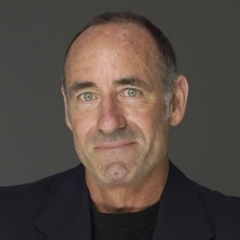Voiland School of Chemical Engineering and Bioengineering Graduate Seminar Series

About the event
The Gene and Linda Voiland School of Chemical Engineering and Bioengineering is hosting a seminar presented by Dr. Eric McFarland, Professor, Department of Chemical Engineering, University of California, Santa Barbara.
Eric McFarland is a Professor of Chemical Engineering at the University of California, Santa Barbara (UCSB). He studied nuclear engineering and medicine and received his Ph.D. from MIT and his M.D. from Harvard. His professional focus for the last decade is in catalysis and reaction engineering related to energy conversion. McFarland has always worked closely with industry on problems related to energy and chemical production and he has held senior management positions in several companies related to his University research and is an active advisor to industry. McFarland recently returned to UCSB from a two-year position as the founding Director of the Dow Centre for Sustainable Engineering Innovation and Dow Chemical Chair of Chemical Engineering at the University of Queensland, Australia.
Plan B: Taking the Carbon out of Fossil Fuels with Catalytic Reactive Separation
There is no evidence that significant reductions in the carbon dioxide emissions associated with power generation will be cost effectively achieved using current commercial alternatives to abundant and inexpensive fossil fuels. The lowest cost process for producing hydrogen and/or dispatchable electricity without CO2 emissions in the U.S. utilizes pyrolysis of abundant, low-cost, natural gas. The challenge is to achieve high methane reaction rates and high conversion to molecular hydrogen in a reaction environment where solid carbon can be continuously separated. Reactive separation using high temperature (~1000 oC) catalytic complex liquids has been investigated in several multiphase reaction systems and high rates (>1 mole/m3-s) of methane decomposition and high selectivity for molecular hydrogen observed. When the physical properties of the liquids are selected optimally, conveniently separable solid carbon is produced from methane deydrogenation in bubble column reactors. Solid catalysts in specific melts may also be continuously reactivated as the high temperature liquid serves as a solvent to remove carbonaceous surface deposits prior to the irreversible formation of deactivating coke. Single pass methane conversion of over 95% to molecular H2 at over 98% selectivity is demonstrated in complex melt systems. Fundamentals of C-H bond activation on melt surfaces and the interactions with the gas phase chemistry will be discussed and distinctions made as to how different reaction pathways can produce different types of solid carbons. Process designs for solid carbon synthesis with zero carbon hydrogen and/or electricity production together with relative technoeconomics will be presented.““““““““““